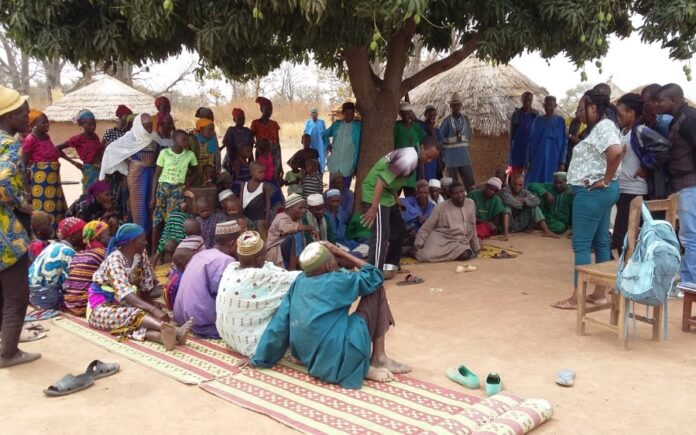A recent study by Dessie, A. M., & Zegeye, Z. B. (2024) titled “Review on: Public Perception of Biotechnology on Genetically Modified Crops, Bio Policy and Intellectual Property Rights” published in American Journal of Polymer Science and Technology by Science Publishing Group shows that public attitudes towards genetically modified (GM) crops are influenced by trust in government and scientists and distrust in biotechnology corporations.
“
Public attitudes towards genetically modified crops are shaped by trust in government and scientists and distrust in biotechnology corporations globally.– Dessie, A. M., & Zegeye, Z. B. (2024
The study explores the varying public opinions on genetically modified (GM) crops, highlighting both support and opposition based on perceived risks and benefits. The authors cover the importance of biosafety regulations and bio-policies in managing the risks associated with GM crops, including ethical and safety concerns. The study examines the status and challenges of GM crop adoption in different regions, including Africa, Latin America, Europe, North America, Asia, and Oceania. The authors further address the role of intellectual property rights in biotechnology, focusing on patents, trade secrets, and plant variety protection.
How the study was conducted
The study employed data from various sources, including surveys, public opinion polls, and existing literature on biotechnology and genetically modified organisms (GMOs). The data was analyzed to identify factors influencing public perception, such as socioeconomic status, education, scientific knowledge, and trust in government and corporations. The study compared public perceptions across different regions, including Europe, North America, Latin America, Africa, Asia, and Australia. The research incorporated scientific, ethical, policy, and regulatory perspectives to assess and manage the risks associated with GMOs.
What the authors found
The authors found that public attitudes towards genetically modified (GM) crops are influenced by trust in government and scientists and distrust in biotechnology corporations. In addition, the study shows that Europe has the strongest negative attitudes towards GM foods, while acceptance varies globally, with some regions showing moderate to high acceptance.
Why is this important
Food Security and Health: Genetically modified (GM) crops have the potential to address global food security challenges by increasing crop yield, improving resistance to pests and diseases, and enhancing nutritional content. Understanding public perception and acceptance is crucial for informed policy decisions.
Environmental Impact: GM crops can reduce the need for chemical pesticides and fertilizers, benefiting the environment. However, concerns about unintended effects on ecosystems and biodiversity require careful management.
Economic Growth: Biotechnology innovations contribute to economic growth by fostering agricultural productivity and creating jobs. Public acceptance influences investment in research and development.
Ethical and Social Considerations: Public trust in the safety and ethical implications of GM crops affects their adoption. Transparent communication and effective biosafety regulations are essential.
Global Collaboration: Recognizing regional differences in perception allows for targeted strategies to promote acceptance and responsible use of GM technology worldwide.
What the authors recommended
- The authors recommend clear labeling of GM products to inform consumers. Transparent communication about the benefits, risks, and safety measures associated with GM crops is essential.
- The authors advocate that engaging scientists, policymakers, and the public in open discussions about biotechnology and GM crops can foster understanding and address concerns. Public awareness campaigns and educational initiatives are valuable.
- Strengthening biosafety regulations ensures the responsible use of GM technology. Rigorous risk assessment and monitoring are crucial to prevent unintended consequences.
- The authors emphasize the importance of intellectual property rights to incentivize research and development in biotechnology. Balancing patents with accessibility for public benefit is recommended.
- International collaboration allows sharing of best practices, harmonization of regulations, and coordinated efforts to address global challenges related to GM crops.
In conclusion, the study by Dessie and Zegeye provides valuable insights into the complex dynamics influencing public perception of genetically modified crops. Trust in government and scientists, alongside skepticism towards biotechnology corporations, plays a pivotal role in shaping attitudes. The findings underscore the need for transparent communication, robust biosafety regulations, and inclusive discussions among stakeholders to address concerns and foster acceptance. As GM technology holds significant potential for enhancing food security, environmental sustainability, and economic growth, understanding and addressing public perception is crucial for the responsible and beneficial deployment of biotechnology worldwide.
















 The African Research (AR) Index is a comprehensive scholarly directory and database focused explicitly on journal publishers that publish and disseminate African research.
The African Research (AR) Index is a comprehensive scholarly directory and database focused explicitly on journal publishers that publish and disseminate African research.

